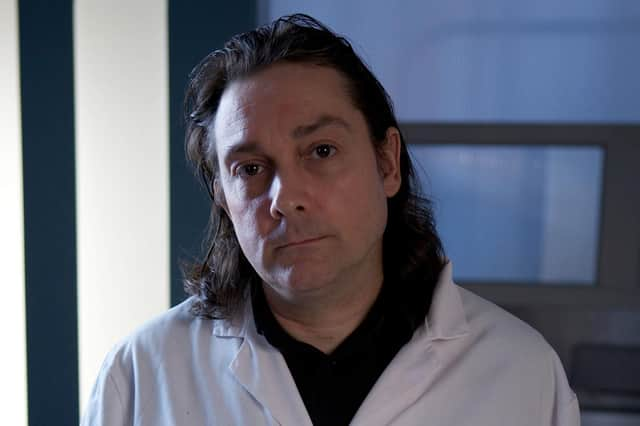Eminent Scarborough scientist assigned new inspirational role


The initiative’s core aim is to demonstrate that it is possible to successfully pursue a scientific career whilst disabled, with the overall objective of encouraging young people to both study and work within the profession.
Having overcome the significant challenges of cerebral palsy, which affects movement and co-ordination and accompanying learning difficulties, Dr Buckley has also been able to contend with the additional difficulties of both arthritis and depression.
Advertisement
Hide AdAdvertisement
Hide AdHis particular medical condition, however, guides him to think in unusual ways enabling him to see intrinsic patterns and significance in his work that otherwise would have been missed.
He said: “Discussion of disabled scientists was absent for much of my career, but increasingly there is greater awareness and support where it is offered, can make a huge difference to career progression and even more fundamentally,
how difficult and isolated it can otherwise feel”.
Dr. Buckley, BSc., MSc. PhD., an archaeological chemist, began his career researching the way ancient cultures used natural products to embalm and mummify their dead.
Since then, his studies have developed to inform historians and archaeologists regarding many aspects of ancient trade routes, geopolitics, religion and identity.
Advertisement
Hide AdAdvertisement
Hide AdHis work now encompasses the pioneering study of ancient diets and environments through the chemical analysis of dental tartar (the deposit a dentist removes from teeth today), from human remains.
The accumulated data has led to the discovery of medicinal plants used by Neanderthals and the earliest evidence for the use of coal in the western world, predating that of its role in powering the Industrial Revolution by 3,000 years.
Over the past three decades, in his very exacting and specialist scientific role, he has studied mummification techniques across four continents from Irish bog bodies, Peruvian mummies and preserved Roman human remains, to his involvement in several excavations in Egypt’s Valley of The Kings beginning in 1993.
A research fellow in Biomolecular Archaeology at the University of York, he has also lectured extensively both in the UK and abroad, notably at The Smithsonian in Washington D.C. and at The Royal Society in London.
Advertisement
Hide AdAdvertisement
Hide AdIn addition to the publication of his prodigious academic research findings, his work has also been featured in the prominent science journal Nature.
His most recent investigations have consisted of studies into human consumption of seaweed and freshwater aquatic plants in ancient Europe, some 3,000 years before this was first suggested by evidence in China c.2,700BC.
Amongst numerous television appearances in an extensive career, Dr. Buckley was the lead scientist in the unique and highly memorable BAFTA-winning Channel 4 programme ‘Mummifying Alan: Egypt’s Last Secret’ in 2011 in collaboration with
the renowned Egyptologist Professor Joann Fletcher.
The couple have also carried out scientific analysis in museum collections around the world and among the permanent galleries featuring their work, the ancient Egyptian gallery at the Museum of Wigan Life is dedicated to them both.